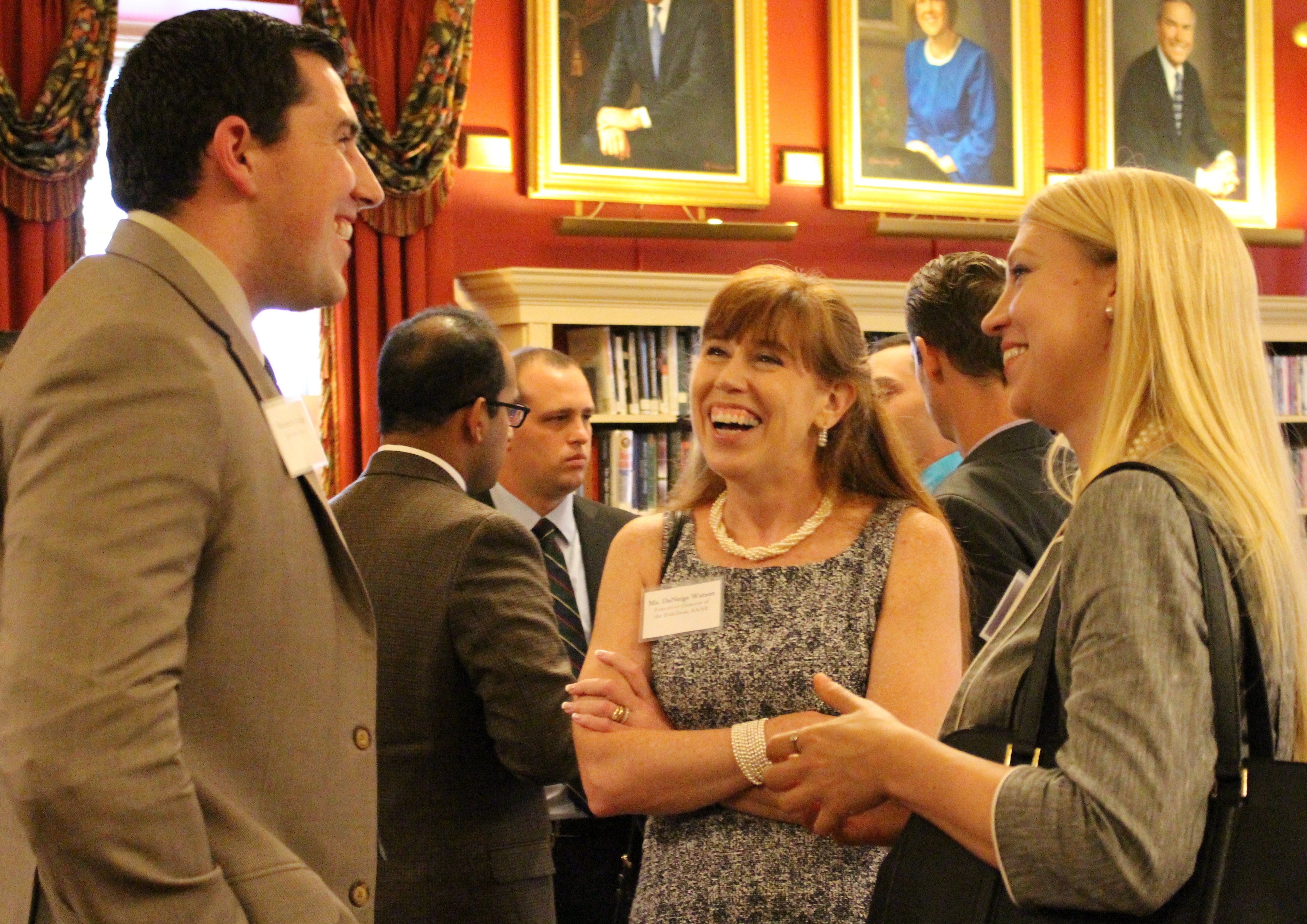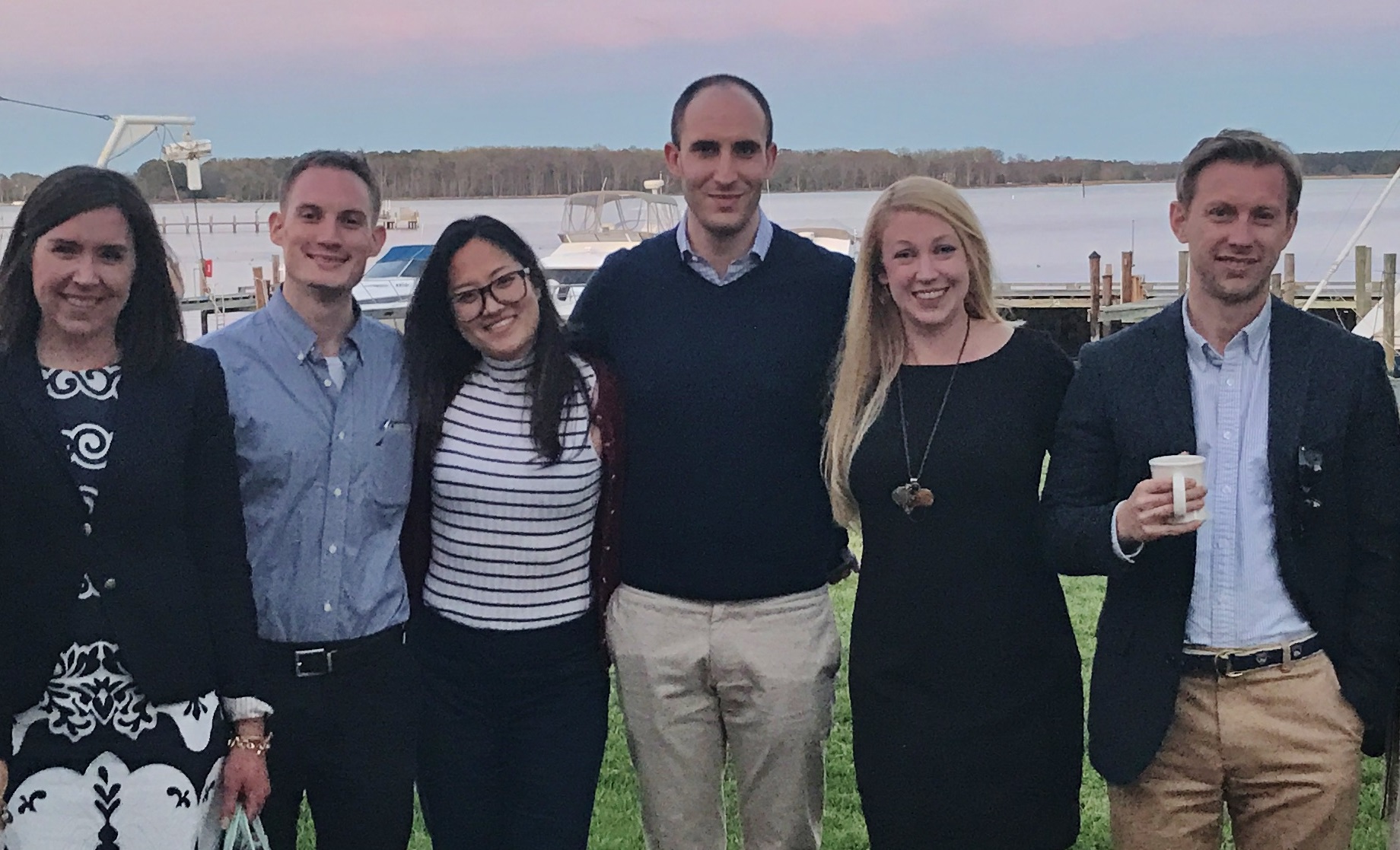This September, I was fortunate to attend the Rumsfeld Foundation’s Graduate Fellowship Conference in Washington, D.C. I had attended this annual event the year prior, so had an idea as to what to expect: insightful guest speakers, stimulating discussion and valuable conversations with a group of passionate, impressive individuals who wish to improve the communities around them.
I always look forward to attending the annual Conference and other Foundation events, but this year I was particularly appreciative to be able to participate. So much has occurred around the globe over the past year and the sheer volume of conflicting facts, articles, studies and opinions at hand can make it feel like an exercise in futility for any individual attempting to understand these many developments. For me, the Conference provides a valuable opportunity to make sense of all that has happened by listening to the thoughtful opinions and insights of senior professionals in a variety of fields. The speakers provide situational context gained over the course of their careers and elaborate on how their experiences shape their perception of current events. This year’s keynote speakers, Dr. Arthur Laffer, renowned economist, and Judge Michael Mukasey, former 81st Attorney General of the United States, are experts in two fields that I do not have a particularly robust background in, so the opportunity to hear from them provided a valuable lens through which to interpret a number of timely topics.
At the conference, I also participated in one of six smaller breakout sessions for attendees. Mine was a terrific session on intelligence, a both fascinating and complicated topic particularly in light of recent intel leaks, as well as the increasing threat of cyberattacks across the public and private sectors. Over the course of the session, our speaker, the Executive Director of the RiskDesk at RANE and former intelligence briefer to Secretary Rumsfeld, covered a range of topics from industry-specific job advice to commentary on the organizational culture of intelligence agencies as well as specific ways to combat Insider Threat concerns, among many other topics of importance.
 While I learned a number of valuable lessons, the conversation that resonated with me the most was the account of her experience inside the Pentagon on September 11th, 2001. Hearing her personal story of being evacuated in the midst of the chaos, yet making the decision to report for duty the next day, was a palpable reminder of the courage and commitment of each man and woman who put the nation’s welfare ahead of their own during that trying time. Her story was an inspiring example of public service and exemplified the spirit of service that all of us Graduate Fellows hope to emulate throughout our careers.
While I learned a number of valuable lessons, the conversation that resonated with me the most was the account of her experience inside the Pentagon on September 11th, 2001. Hearing her personal story of being evacuated in the midst of the chaos, yet making the decision to report for duty the next day, was a palpable reminder of the courage and commitment of each man and woman who put the nation’s welfare ahead of their own during that trying time. Her story was an inspiring example of public service and exemplified the spirit of service that all of us Graduate Fellows hope to emulate throughout our careers.
The Benefit of the Network
Beyond each year’s formal Conference sessions, I also look forward to visiting with the other Fellows in attendance. At this year’s Welcoming Reception, I was delighted to learn that one of the new Fellows was a Marine Corps veteran like myself, another is currently enrolled in a graduate course with my favorite professor and a third is a former colleague with whom I had once worked closely within the Department of Defense. While always enjoyable to discover such commonalities, it is even more encouraging to hear about the unique passions and specializations throughout the group.
Before attending my first Fellowship Conference last year, I remember scanning through the network’s bios of the current and former Fellows. It was an impressive collection of people: veterans, founders of non-profits, published authors, business owners, federal government employees, professors and more. At that point, I had some experience with a few local professional organizations and alumni groups I had joined throughout my time at Georgetown and expected that my experience with the Graduate Fellowship network would be similar. However, after attending the first Conference and having a chance to meet this group, I was surprised to realize how much it stood apart from my other connections and networks. I had found a truly engaged and service-oriented set of influencers who were excited to meet me and genuinely hear about my pursuits as well as to share their own. Further, I was even more pleasantly surprised to find that people had read my one scholarly article and wanted to discuss it with me- every graduate student’s dream!
Throughout the Conference, I had the opportunity to meet more of the Fellows and Advisers and found that two character traits were constant: drive and humility. The Fellows and Advisers were not attending the Conference to promote their own achievements but rather to discuss common interests like leadership and public service, notable undercurrents of the entire day.
I had such positive interactions at that first Conference that I found myself spending time with the Fellows outside of Foundation events. I started meeting one Fellow, who was also a veteran, for early morning workouts. When I took a weekend trip to a local winery, I invited some Fellows to come along with me. When I needed some help with my graduate thesis topic, another Fellow made time to grab coffee with me to work through it.
As I drew closer to graduation and began contemplating a career change, despite his busy schedule, a Foundation Adviser blocked off an entire afternoon to provide advice and guidance to me. He went out of his way to connect me with relevant professionals and I was able to schedule meetings with each of them. Last August, I successfully transitioned to a new job and I largely credit the mentorship of the Foundation’s Fellows and Advisers in helping me to get here.
In my discussions with other Fellows, I know that many of them have also benefitted from the network’s collective mentorship, and this year I was pleased to see many of us pay it forward. At this year’s Conference, I was delighted to answer questions about working in the DoD, navigating the security clearance process and serving in the military. When my company announced that they would be hiring additional employees, I forwarded the opportunity to a couple of Fellows who I knew were interested in the industry. Through the Fellowship network, I have experienced firsthand how important it is to have someone take an interest in you and your career. Moving forward, I aim to reciprocate by continuing to help other Fellows succeed in their goals.
Leadership and Public Service
One of the reasons I am so enthusiastic about this network is due to the high caliber individuals it attracts. Part of the mission of the Rumsfeld Foundation is to foster leadership and public service and I am fortunate to witness the large number of Fellows who are actively pursuing ways to serve our country.
In recent years, a number of think tanks have published articles on what appears to be a decline in the “public service ethic” among young professionals, particularly those under 30. Authors speculate that interest in public service has decreased, citing the federal government’s notorious bureaucracy, the often-complicated hiring process, the less-competitive salaries and a host of other potential reasons. However, despite these factors, this fact remains: the country needs young, intelligent and motivated individuals to step up and serve. The Rumsfeld Foundation’s Graduate Fellows are doing just that.
I am extremely grateful for the opportunity to be a part of this valuable and impressive network of friends, mentors and professionals who continually inspire me to pursue my goals with drive and humility and to serve this nation with honor.
- Theresa C. participated in the Rumsfeld Foundation's Graduate Fellowship Program as a 2016-2017 Fellow at Georgetown University pursuing a degree in Security Studies. She currently works as a manager of forensic investigations for KPMG's Federal Practice.


